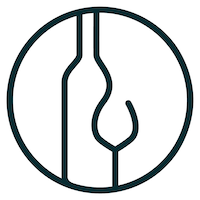
Working in the hospitality industry comes with a variety of responsibilities, especially when it comes to food safety. Whether you’re looking to join the industry or are already employed, the importance of a food handler certificate can’t be overstated. This article will cover various aspects of food safety training, including the validity period of a food handler certificate in Victoria, Australia.
What You Learn in a Food Safety Course
A food safety course equips you with the knowledge and skills you need to handle food safely and prevent contamination. The curriculum explains foodborne illness and covers food storage, temperature control, and cleaning practices. By the end of the course, you will be able to identify potential hazards and mitigate risks, ensuring the safety of customers and staff.
Which Businesses Need a Qualified Food Handler?
In Victoria, a food handler certificate is helpful for individuals who prepare, serve, or sell. This includes a wide range of establishments such as restaurants, cafes, hotels, catering services, and even mobile food vendors. If your role involves direct contact with food or surfaces that come in contact with food, having a food handler certificate is essential for maintaining public health standards.
How Long a Food Handler Certificate Lasts in Victoria
A food handler certificate in Victoria is valid indefinitely, with no official expiry date. However, it is recommended to refresh your training periodically. This ensures you stay updated with the latest food safety regulations and practices, maintaining a high standard of food hygiene in your workplace.
The Difference Between a Food Handler Course and a Food Safety Supervisor Course
While both the food handler course and food safety supervisor course focus on food safety, they serve different purposes and target different levels of responsibility. A food handler course is designed for general staff members who handle food as part of their daily duties. A food safety supervisor course is more advanced and intended for individuals who are responsible for overseeing food safety within an establishment. This course covers more advanced topics and provides higher-level training in managing and implementing food safety plans.
How To Choose the Right Food Safety Course for Your Needs
Selecting the appropriate food safety course depends on your role and career aspirations in the hospitality industry. If you are new to the field or your job involves basic food handling tasks, a food handler course should suffice. However, if you aim to take on a supervisory role or have greater responsibilities, enrolling in a food safety supervisor course is more beneficial. Additionally, consider courses that are accredited and recognised by local authorities to ensure that your certification is valid.
Obtaining a food handler certificate is a fundamental step towards ensuring food safety in any establishment serving food. While the certificate may not have a strict expiration date, staying updated with current practices through regular training is advisable. By understanding the differences between various food safety courses and choosing the one that aligns with your career goals, you can contribute significantly to maintaining high food hygiene standards in your workplace.





